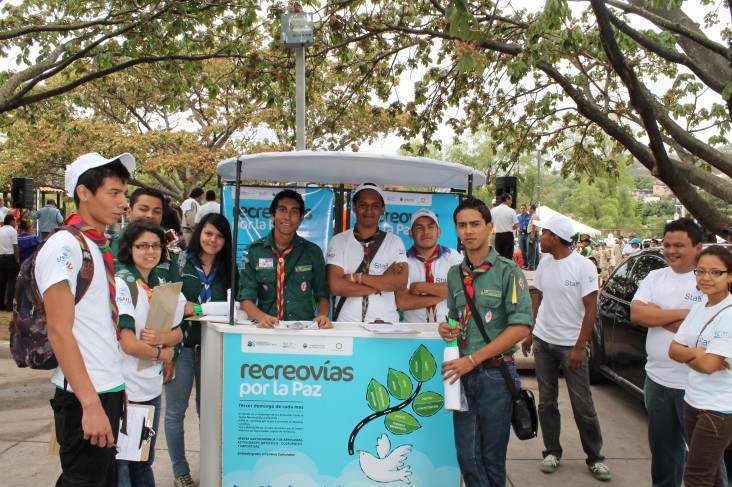- What We Do
- Agriculture and Food Security
- Democracy, Human Rights and Governance
- Economic Growth and Trade
- Education
- Ending Extreme Poverty
- Environment and Global Climate Change
- Gender Equality and Women's Empowerment
- Global Health
- Water and Sanitation
- Working in Crises and Conflict
- Disaster Assistance
- Political Transition Initiatives
- Conflict Mitigation and Prevention
- Countering Violent Extremism
- Disaster Risk Reduction
- Peacebuilding and Reconciliation
- Providing Safe & Secure Environments for Development
- Recovering From Crisis
- Resilience
- Tech Challenge for Atrocity Prevention
- World Humanitarian Day
- U.S. Global Development Lab

In a country with one of the world's highest homicide rates, OTI supports civil society engagement and the strengthening of alliances between communities and government institutions to reduce violence.
WHY USAID/OTI IS IN HONDURAS
Honduras remains a country plagued by one of the world’s highest homicide rates. The untenable situation created a political crisis in 2012 and provoked widespread demands to reduce levels of violence. This triggered a concentration of U.S. efforts to address the citizen security challenge.
The extraordinary level of violence pushed high numbers of Honduran migrants, including tens of thousands of children, to the U.S.-Mexico border. Honduras’ geographic and cultural proximity to the United States render its stability, security and success critical to U.S. interests.
USAID/OTI'S ROLE IN HONDURAS
USAID/OTI’s “Honduras Convive!” program supports the Honduran government’s efforts to reduce homicides and other violent crime. The program’s objective is to disrupt the systems, perceptions and behaviors that support violence. The program knows that communities who trust government institutions will be active partners in preventing crime and violence. Convive’s activities focus on the creation of low-tech and low-cost models of violence disruption that can be implemented by the government of Honduras.
PROGRAM HIGHLIGHTS
- USAID/OTI installed security cameras and lighting, fostered security committees and provided training in several markets known for high levels of gang control, extortion, drug dealing and homicides. These security improvements drove citizens’ positive perceptions of security, decreased extortion and increased sales.
-
The USAID/OTI Safe Schools Initiative brings together school officials, parents, the surrounding community, local government and the police to plan and implement small-scale security improvements to schools suffering from the effects of gang influence. In one case, a high school was on the verge of shutting down — enrollments had dropped from 1,700 students to 412. USAID/OTI programming resulted in a 98 percent enrollment increase to 816 students in 2016. The Honduran police then reached out on their own initiative to 16 additional schools to begin developing similar security plans..
- USAID/OTI creates community networks, building links with local government (including the police) to transform neighborhoods. In one community, USAID/OTI supported security improvements, facilitated the return of municipal health and transportation services and encouraged citizens to report crimes. As a result, homicides decreased substantially — from 22 in 2013, to only one in 2016. Further, while only 29 percent of residents surveyed in 2013 thought security was improving, that number increased to 88 percent in 2016. No longer plagued by violence, the community is now looking ahead to promote tourism and increase economic growth.







Comment
Make a general inquiry or suggest an improvement.